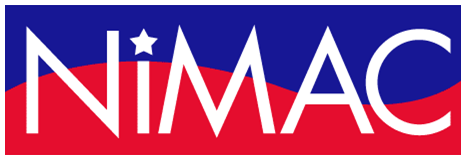Policy Announcements
Questions and Answers on the National Instructional Materials Accessibility Standard (NIMAS)
On August 9, 2021, OSEP issued a revised NIMAS Q & A. This Q & A provides states, state educational agencies (SEAs), local educational agencies (LEAs), and other interested parties with information to facilitate implementation of the NIMAS and coordination with the NIMAC.
Notice of Interpretation Regarding Digital Instructional Materials
The following notice published in the Federal Register on Tuesday, May 26, 2020:
OSERS/OSEP Assistance to States for the Education of Children With Disabilities–Final Notice of Interpretation.
SUMMARY: The Individuals with Disabilities Education Act (IDEA) established the National Instructional Materials Access Center (NIMAC) in 2004 to assist State educational agencies (SEAs) and local educational agencies (LEAs) with producing accessible instructional materials for students with print disabilities. The U.S. Department of Education (Department) issues this final notice of interpretation to clarify that the definition of “print instructional materials” in IDEA includes digital instructional materials.
Previously, the NIMAC was only able to accept for materials published and distributed to students in a hard copy print format. However, going forward, the repository can accept NIMAS files for instructional materials that are distributed to students only in a digital format, as long as these materials can be supplied in NIMAS format. For more information, see NIMAC and Digital Materials: Frequently Asked Questions.
The notice can be viewed at the following Federal Register website: Final Notice of Interpretation.
A Word document version of the Notice can be downloaded here: Final Notice – Word Doc.
New Copyright Definitions Post Marrakesh
On January 23, 2020, OSERS released a memorandum to State Directors of Special Education notifying them of the changes to copyright that became effective through the ratification of the Marrakesh Treaty Implementation Act.
Specifically, the copyright law has been changed to provide new definitions for “eligible person” and “accessible format.”
Although the IDEA statute and regulations have not yet been revised to reflect these changes to copyright, states were advised to “rely on, and utilize, the terms and definitions as updated and implemented by the Marrakesh Treaty and found in the Copyright Act at 17 U.S.C.§ 121.”
The eligibility criteria provided for NIMAS previously has pointed to the NLS guidelines, and these have not yet been updated. The NIMAC will not be requiring that State Coordinators, Authorized Users, or Accessible Media Producers sign revised agreements until new NLS guidelines are in place and we can incorporate them into revised agreements. However, we encourage states to adopt the new definitions in their policies and processes, per the guidance from OSERS.
Additional information, and a link to to the OSERS memorandum, can be found at the National AEM Center website: NIMAS Terms Clarified Post Marrakesh.
Please don’t hesitate to contact us if you have any questions.
Chafee Authorized Entities as Authorized Users
As of January 23, 2009, states may name organizations which are “authorized entities” under the Chafee amendment to serve as NIMAC Authorized Users, whether or not these agencies are from within the educational structure of the state. Contact the NIMAC if you have any questions.
NIMAC Policy Update: “Advance Copy” File Sets
June 14, 2007 (Revised August 24, 2007)
Effective immediately, the NIMAC wishes to advise all publishers, SEAs and LEAs that, after conferring with OSEP, NIMAC has determined that it will not accept “advance copy” file sets into the repository. “Advance copy” is to be defined as a version that is made and distributed for review purposes only, prior to a final, corrected version that will be made available for use in the classroom. “Advance copy” is not necessarily synonymous with an “A printing” or 1st printing as some “A printings” and 1st printings may be determined by the publisher to be clean enough for use in the classroom. The determination of the final, corrected version will be made by publishers.
NIMAC strongly encourages SEAs and LEAs to not require publishers to provide certified NIMAS files with bid submissions. Many of these files would have “advance copy” (for review purposes only) status, and these files would not be a final, corrected version for use in the classroom. Contract language that NIMAS files will be submitted to NIMAC by contract start date should be sufficient.
Because “advance copy” versions of instructional materials are not the final versions approved for use in the classroom, they are not appropriate for use in the creation of specialized formats for blind, visually impaired and print-disabled students. Accepting these versions into the repository introduces the risk that specialized formats will be produced using file sets that are not corrected, final versions. Students then receiving these formats could receive a product that is significantly different or inferior to the version received by their non-disabled peers.
NIMAC requests that SEAs and LEAs please keep this policy in mind when drafting language for publisher contracts requiring the submission of files to NIMAC. Please do not require “advance copy” file sets to be submitted as NIMAC will not accept these file sets.
Please contact the NIMAC at 877-526-4622 if you have any questions regarding this policy statement.
–>
